This article was co-authored by Noel Hunter, Psy.D. Dr. Noel Hunter is a Clinical Psychologist based in New York City. She is the director and founder of MindClear Integrative Psychotherapy. She specializes in using a trauma-informed, humanistic approach for treating and advocating for people diagnosed with mental disorders. Dr. Hunter holds a BA in Psychology from the University of South Florida, an MA in Psychology from New York University, and a doctorate in Psychology (Psy.D) from Long Island University. She has been featured in National Geographic, BBC News, CNN, TalkSpace, and Parents magazine. She is also the author of the book Trauma and Madness in Mental Health Services.
There are 26 references cited in this article, which can be found at the bottom of the page.
wikiHow marks an article as reader-approved once it receives enough positive feedback. In this case, 100% of readers who voted found the article helpful, earning it our reader-approved status.
This article has been viewed 43,172 times.
Psychosis is a scary disorder. Hallucinations, delusions, hearing voices, and general confusion are the hallmarks of the psychotic individual. Fortunately, there are number of things you can do to prevent psychosis.
Steps
Getting Help
-
1Identify your genetic risks. Some conditions which can lead to psychosis, such as schizophrenia and bipolar disorder, may be genetically linked. [1] If someone in your family has schizophrenia, bipolar, or a personality disorder, you may be at higher risk for these conditions, and may be more likely to experience psychosis. Your doctor can help you obtain a complete genetic profile and conduct a medical history of your family. By better understanding your genetic background, you will be more informed about your likelihood for developing psychosis and can better prepare yourself against the possibility.
- Be aware that, even with this information, your doctor can offer you a risk profile, but not a diagnosis or a guarantee that you will or will not get one of these conditions. Identifying genetic markers for conditions like schizophrenia is in early stages, and there is no test used to diagnose schizophrenia yet.[2]
- Even when risk factors are very high, some people still do not develop schizophrenia, though the reason for this is unknown.
-
2Get the care you need if you are already diagnosed with a related medical condition. Some medical conditions and mood disorders can affect your how your brain functions. Medical conditions which can manifest psychotic symptoms include:[3]
- Alzheimer’s
- Parkinson’s
- Brain tumors
- HIV
- Malaria
- Hypoglycemia
- Acute intermittent porphyria
- Schizophrenia
- Bipolar disorder
- Endocrine diseases
- Liver or kidney failure
- Syphilis
- Seek medical advice to prevent your condition from developing into a psychotic break.
Advertisement -
3Seek help if you are addicted to a substance like alcohol or drugs. People who have been involved in any kind of drug abuse have a very strong chance of suffering from psychosis. Drugs can alter your perception of reality. Sometimes they alter your perception beyond repair by altering the neuro cycles in your brain. Even drugs like marijuana, which is often considered to be more of a "soft" drug, can an increase risk of developing psychosis by two fold if used during brain development stages (your teens).[4] This is not limited to "street" drugs and alcohol — prescription medication can also be a cause of psychosis if abused, or if your use of the drug ends suddenly. [5]
- One of the most effective ways to prevent drug-induced psychosis is by slowly reducing your use of drugs.
- Tell yourself that you want to quit and seek help, either through therapy, a 12-step program, or by reaching out to friends and family.
- Stay away from friends or peers that encourage you to use the drug.
- Get away from all the things that trigger your habit of dependency.
- Motivate yourself by keeping a picture of your loved ones with you to remind yourself that you are affecting their lives as well.
- Get involved in all the activities that you used to do before you began taking your drug.
- Keep yourself busy at all times so that you do not feel the need to take your drug.
-
4Get help if you have experienced a trauma. The main underlying factor for psychosis is a history of trauma.[6] When you experience a trauma, both your mind and your body have to deal with the aftermath. Sometimes, people who experience traumatic situations experience hyper-realistic flashbacks or become paranoid.[7]
- Talk to a therapist about your experience. It can be dangerous to try and treat your trauma on your own or to ignore it. A therapist can help you learn healthy ways to deal with and work through the trauma.
- Face the trauma head-on. Accept what happened and acknowledge that while you cannot change what happened, you can change your reaction to it.
- Stay away from drugs and alcohol, as abuse of these substances could lead to post-traumatic stress disorder (PTSD).
-
5Have someone to rely on. Strong family bonds and positive relationships can prevent a psychotic break. Talking to an empathetic family member or friend about your concerns will help you feel safe and cared for, which will improve your overall mental health.[8]
- Create supportive relationships with people who care for you and take your problems seriously.
- If you don't have family and friends to rely on, find a good doctor you can trust.[9]
-
6Talk to a therapist. A very good way to prevent psychosis is to talk to a therapist about the challenges you are facing. Going to therapy will give you another perspective and help you understand the underlying reasons for your problems, both of which are steps towards a solution.[10]
- You can get a list of certified therapists from your general practitioner. He or she can also recommend the best therapy for your specific situation.
- Your therapist might also prescribe you with medication. Follow the medication's directions carefully.[11]
Managing Stress and Facing Emotions
-
1Recognize early warning signs. Before the onset of psychosis, many people experience significant changes in their behavior or attitude. Educating yourself about these changes and acting on them could give you the opportunity to delay or avoid psychosis. Signs of impending psychosis include:[12]
- Feeling on edge
- Being suspicious of others
- Not enjoying the things you usually enjoy
- Skipping work or school
- Feeling depressed
- Feeling anxious
- Not showering or maintaining proper hygiene
-
2Reduce your anxiety levels. Anxiety and stress can bog you down and make you feel like life is unbearable. If you feel this way, you must reduce the amount of stress in your life to prevent developing psychosis.[13]
- To keep stress from affecting your mental capabilities, manage the things that are stressing you out. Avoid, take control of, or adapt to whatever is causing you undue stress.[14]
- Keep a stress journal and write down all the things that are causing you stress.[15]
- When possible, avoid people that make you feel anxious.
- Drop responsibilities that aren’t necessary. Make a list of the tasks you have to do and separate them into things you absolutely have to do, and things that you can get away with not doing, or do at a later date.
- Do things that make you happy. This includes being with people that make you laugh.
- Get plenty of exercise. Exercising releases endorphins in your body that act as a natural stress reducer.
- Talk to a therapist about your anxieties. Sometimes talking to someone about what is stressing you out can lead you to a solution.
-
3Let your emotions out. Psychosis can be the result of bottling up your emotions. Keeping your feelings to yourself or agreeing to do things you don’t want to can trigger psychosis. The best way to deal with your emotions is to express yourself to someone you trust.[16]
- Seek the advice of a trusted friend or family member, and listen to other perspectives on your situation.
- Learn to say no. You are not obligated to do all that others ask of you. Helping others is important, but be sure that you’re taking care of yourself first.
- Talk to a therapist about your thoughts and feelings. Sometimes opening up to someone who is not close to you can be hard, but therapists are specially trained to address mental health issues, and can offer a more objective point of view than a friend or family member.
- Try writing, playing music, or painting. Creative acts can reduce stress and serve as outlets for emotional energy.[17]
-
4Banish negative thoughts. This is especially important in cases of bipolar or depressive psychosis. When you focus on negative, self-defeating thoughts, you create an unhealthy mentality. Instead, think only about the good aspects of your life and personality. While it is important to remember that no one is perfect, it helps to focus on your accomplishments, rather than aspects of yourself which are less than ideal.[18]
- Thoughts like “There is nothing I can do” or “I am weak” may pop up. Respond to them by saying: “I can overcome this” and “I am strong enough to deal with this situation, and ask for help if I need it.”
- Focus on your strengths and achievements. You can also come up with a game plan to strengthen the aspects of yourself that you think could be improved.
- Thinking positively involves acknowledging that even though you are at risk for psychosis, it’s not the end of the world. Understand that you’re not crazy, and you’re not a bad person; you’re just having a rough experience and you can get through it.
-
5Take control of your physical as well as mental health. The body and mind sometimes seem separate, but are best thought of as a holistic (joined) unit. Maintaining a healthy diet and engaging in physical activity can prevent psychosis.[19]
- Incorporate omega-3 fatty acids into your diet.[20] Omega-3 fatty acids can be found in foods like fish, eggs, flax, and hemp, or in supplement form.
- Exercise daily. When you exercise, your body releases endorphins. Endorphins are responsible for making you feel happy and less stressed. When you are happier and less stressed, you are less likely to get bogged down by negative thinking that can lead to psychosis. If you are worried you might develop psychosis, exercise as often as you can.[21]
- Try to get at least 30 minutes of exercise five times a week. Pick activities that you enjoy, like running, swimming, biking, hiking, or rock climbing.[22]
-
6Allow yourself to rest when you need to. A combination of a lack of sleep and high stress levels is a common gateway into psychosis.[23] Do your best to allow both your mind and body to rest when it needs to. Allowing your brain the opportunity to rest will make you feel much more relaxed and happy in general and will therefore serve as a prevention technique for psychosis.[24]
- Get around eight hours of sleep each night and practice relaxation techniques like yoga or meditation.[25]
- Keep a sleep diary to figure out what helps you to get the rest that you need. Write down you ate before bed, what activities you performed, what you were thinking about, etc. You’ll then be able to establish what relaxes you and helps you get a fulfilling night’s rest, as well as what makes you anxious and prevents sound sleep.
-
7Know your limits. It is important to remember that you cannot do everything alone all the time. Pushing yourself beyond your limits can take a toll on your overall happiness, healthiness, and ability to cope with stress — all of which can lead to psychosis. If you are starting to feel stressed, figure out what you don’t absolutely need to do, or what you can get assistance with.[26]
- Write down all of the tasks that you need to accomplish. Writing everything down will serve as a visual aid, and is more useful than just thinking about the tasks you feel you need to do. With a list in hand, you can begin to decide which tasks are not that important and can be removed from your daily routine. Having less to do will make you feel less stressed and more in control of your life.
Preventing Relapse
-
1Identify your triggers. If you have previously experienced psychosis and are at risk for relapsing, try to identify your triggers to figure out why you might have gone into that state.[27] Triggers are usually events which occurred immediately before the onset of psychosis.
- Construct a timeline charting the objective events you experienced (such as breaking up with your partner, starting a new job, or graduating from college) and the subjective feelings you had about them at the time (especially if you were feeling dejected, miserable, lonely or confused).
- Being stressed or feeling like you're in a situation where there's no way out can often be triggers.[28]
- Try talking to your support system to find out what signs you might have showed before your break with reality. You might also ask them to let you know if you start to exhibit some of those same signs.[29]
-
2Control your triggers.[30] Find positive ways to manage your triggers. If possible, avoid the situation(s) which prompted the initial psychotic break. Find a workplace and home environment which limits stress. In addition to reducing stress and learning to relax, you should:
- Practice self-instruction. This is a technique in which you consciously reject negative, defeatist thinking with positive affirmations. For instance, when an idea like “I will never be healthy,” enters your mind, let it slip away and counter it with a thought like “I am a strong person and I will overcome my psychosis.” Self-instruction can and should be practiced even in the absence of negative thoughts.
- Distract yourself. Use different sensory inputs such as television or the radio to prevent hearing voices or switch your attention away from obsessive thoughts.
- Develop personal coping strategies. Not everyone will feel their stress relieved by the same activities. Some people may take a warm bath to relieve stress, while others may go for a bike ride. Some might paint a picture, while others might go swimming. Find out what works for you.
-
3Stick to your medication regimen.[31] In cases where medication is not taken or taken incorrectly, relapse occurs in about 80% of cases. If neglecting to take your medication or forgetting to do so is a common occurrence, ask if it's available as an injection which will prevent any lapses. Taking medication properly and on a regular schedule each day will dramatically improve your chances of staying healthy and avoiding relapse. Use a pillbox with each day clearly labeled to ensure you take all the pills you need each day.
-
4Maintain supportive relationships. Preventing a psychotic relapse requires a strong support team composed of doctors, therapists, family, and friends. Surrounding yourself with people who care for you and understand your condition is crucial to preventing a relapse and ensuring good mental health.
- Inform your family about your struggles with psychosis and open up to them about how it makes you feel. Let them help you financially and materially if necessary, and encourage their feedback.
- Enlist your family and friends to stay vigilant in looking for changes in your behavior which may indicate that a psychotic break is close. Direct them to consult you and your doctor in the event your condition deteriorates.
- Get a list of certified therapists from your general practitioner. He or she can also recommend the best therapy for your specific situation.
- Attend therapy regularly. Therapists are specially trained to address mental health issues, and can provide a more objective point of view than a friend or family member. Your therapist can help you better understand the reasons for your condition and offer specialized coping strategies. As you build a relationship with your therapist, they will be better able to identify changes in your condition.
-
5Have a care plan in place. You need to be able to talk to someone who can help every hour of every day in the event that you begin feeling overwhelmed and noticing changes in your behavior which precede a psychotic episode. Ensure you have backup plans in place, and account for various scenarios like being at work, home, or school.
- Carry a crisis card with you at all times. A crisis card should be a laminated, pocket-sized card with your name and emergency information on it, including your doctor’s name; the address, phone number, and hours of your medical clinic; names and phone numbers of family members; a list of symptoms which may indicate you are beginning to experience psychosis; and a list of steps to take in the event you might be relapsing.[32]
Warnings
- If you think you are developing or experiencing psychosis, seek professional help immediately.⧼thumbs_response⧽
References
- ↑ https://www.healthdirect.gov.au/causes-of-psychosis
- ↑ https://www.nhs.uk/mental-health/conditions/schizophrenia/causes/
- ↑ https://www.nhs.uk/mental-health/conditions/psychosis/causes/
- ↑ http://www.health.harvard.edu/blog/teens-who-smoke-pot-at-risk-for-later-schizophrenia-psychosis-201103071676
- ↑ http://www.nhs.uk/Conditions/Psychosis/Pages/Causes.aspx
- ↑ Noel Hunter, Psy.D. Clinical Psychologist. Expert Interview. 18 December 2020.
- ↑ https://www.psychologytoday.com/blog/what-doesnt-kill-us/201111/trauma-and-psychosis
- ↑ Noel Hunter, Psy.D. Clinical Psychologist. Expert Interview. 18 December 2020.
- ↑ Noel Hunter, Psy.D. Clinical Psychologist. Expert Interview. 18 December 2020.
- ↑ https://www.nhs.uk/mental-health/conditions/psychosis/treatment/
- ↑ Noel Hunter, Psy.D. Clinical Psychologist. Expert Interview. 18 December 2020.
- ↑ https://www.nami.org/About-Mental-Illness/Mental-Health-Conditions/Psychosis
- ↑ https://health.clevelandclinic.org/how-to-relieve-stress/
- ↑ http://www.helpguide.org/mental/stress_management_relief_coping.htm
- ↑ https://www.urmc.rochester.edu/encyclopedia/content.aspx?ContentTypeID=1&ContentID=4552
- ↑ https://kidshealth.org/en/teens/stressful-feelings.html
- ↑ http://www.ncbi.nlm.nih.gov/pmc/articles/PMC2804629/
- ↑ https://www.psychologytoday.com/us/blog/women-s-mental-health-matters/201509/7-ways-deal-negative-thoughts
- ↑ https://www.mind.org.uk/information-support/types-of-mental-health-problems/psychosis/self-care/
- ↑ http://www.nature.com/ncomms/2015/150811/ncomms8934/full/ncomms8934.html
- ↑ http://www.ncbi.nlm.nih.gov/pmc/articles/PMC1470658/
- ↑ http://www.ncbi.nlm.nih.gov/pmc/articles/PMC3567313/
- ↑ https://www.nhs.uk/mental-health/conditions/psychosis/causes/
- ↑ https://www.mhanational.org/rest-relaxation-and-exercise
- ↑ https://www.health.harvard.edu/staying-healthy/yoga-for-better-mental-health
- ↑ https://www.nami.org/Your-Journey/Individuals-with-Mental-Illness/Taking-Care-of-Your-Body/Managing-Stress
- ↑ Noel Hunter, Psy.D. Clinical Psychologist. Expert Interview. 18 December 2020.
- ↑ Noel Hunter, Psy.D. Clinical Psychologist. Expert Interview. 18 December 2020.
- ↑ Noel Hunter, Psy.D. Clinical Psychologist. Expert Interview. 18 December 2020.
- ↑ https://www.mind.org.uk/information-support/types-of-mental-health-problems/psychosis/causes/
- ↑ https://www.mind.org.uk/information-support/types-of-mental-health-problems/psychosis/treatment-and-support/
- ↑ https://www.mind.org.uk/information-support/guides-to-support-and-services/crisis-services/planning-for-a-crisis/
- ↑ ‘’Understanding Psychosis: Issues, Treatments, and Challenges for Sufferers and Their Families’’, 110, https://books.google.com/books?id=152KognyCvMC&lpg=PP1&dq=Promoting%20Recovery%20in%20Early%20Psychosis.%202010&pg=PA110#v=onepage&q&f=false
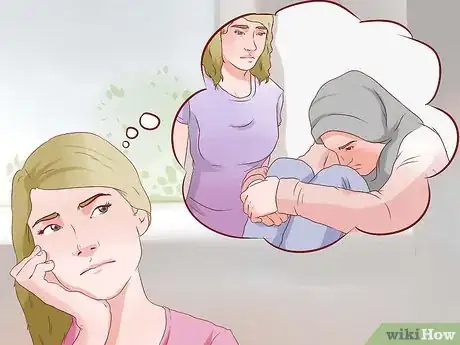

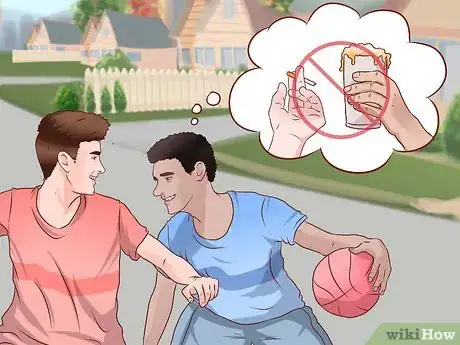
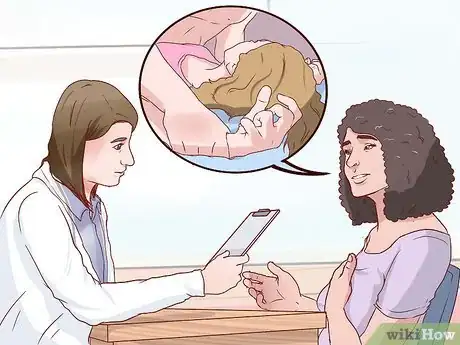




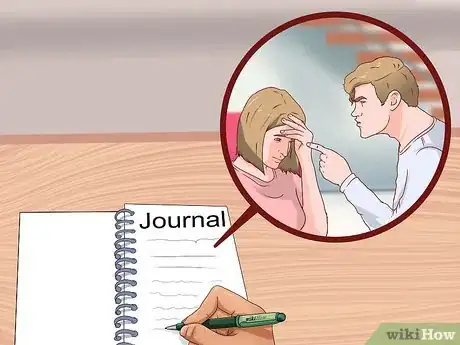



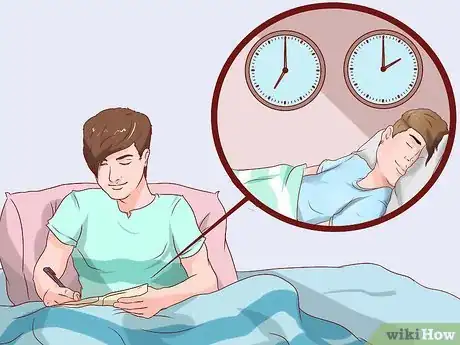


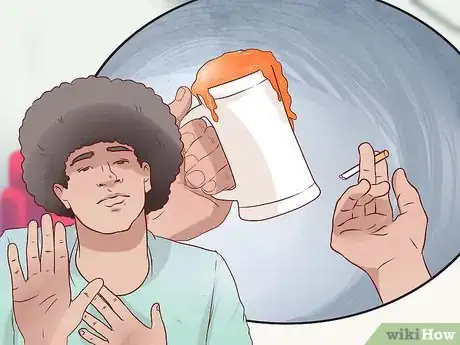

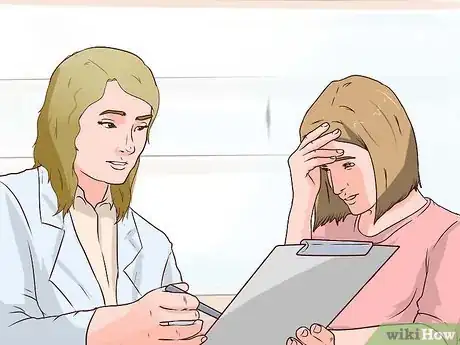





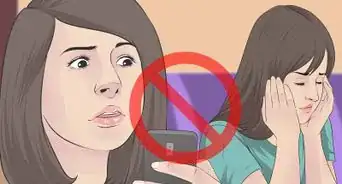

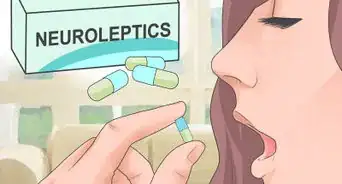
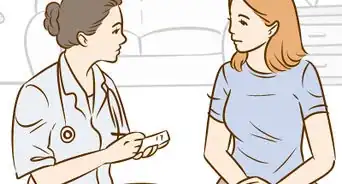






















































Medical Disclaimer
The content of this article is not intended to be a substitute for professional medical advice, examination, diagnosis, or treatment. You should always contact your doctor or other qualified healthcare professional before starting, changing, or stopping any kind of health treatment.
Read More...